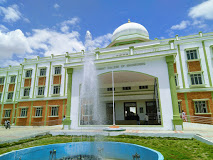
World Photography Day is observed on 19 August, which aims to inspire photographers across the planet to share a single photo with a simple purpose: to share their world with the world. Here is a look at photography over the years.
Daily Current Affairs Quiz 2019
World Photo Day originates from the invention of the Daguerreotype, a photographic process developed by Frenchmen Louis Daguerre and Joseph Nicephore Niepce in 1837.
On January 9, 1839, the French Academy of Sciences announced the Daguerreotype process. On August 19, the French government purchased the patent and announced the invention as a gift “free to the world”.
The Daguerreotype wasn’t the first permanent photographic image. In 1826, Niepce captured the earliest known permanent photograph known as “View from the Window at Le Gras” using a process called heliography.
The first durable colour photograph was taken by Thomas Sutton in 1861. It was a set of three black-and-white photographs taken through red, green and blue filters. However, the photographic emulsions then in use were insensitive to the spectrum, so the result was very imperfect and the demonstration was soon forgotten.
On August 19, 2010 World Photography Day hosted its first global online gallery. Almost 270 photographers shared their pictures and people from over 100 countries visited the website. This marked the first official, globally reaching World Photo Day.
As early as 1839, a selfie was clicked by American Robert Cornelius. Cornelius set his camera up, took the image by removing the lens cap and then running into frame. On the back he wrote “The first light picture ever taken 1839”.
The first digital photograph was taken in 1957; almost 20 years before Kodak’s engineer invented the first digital camera. The photo is a digital scan of a shot initially taken on film which depicts Russell Kirsch’s son and has a resolution of 176×176.





